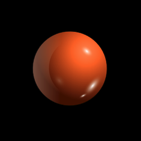SalidonaPublishing.com
0.
0.
The Intersection of Music and AI: Creativity or Imitation?
This section covers topics such as songwriting, composition, music production, and the creative process, as well as what is currently happening in the music scene, medical research, etc.
It is important to recognize that the statements in this section are solely my opinions and should not be taken as fact. It is important to do your own research and make decisions based on facts rather than opinion. It is also important to remember that opinions can change over time and should not be taken as concrete.

0.
In the past few years, the evolution of artificial intelligence (AI) technologies has dramatically transformed various fields, and music is no exception. From composition algorithms to sophisticated music generators, AI has entered the music scene with promises of revolutionizing how music is created, consumed, and understood. However, as these technologies advance, it prompts a critical question: Is AI in music merely a tool for copying or imitating original works, or can it genuinely contribute toward a new understanding of artistic creativity?
The Mechanics of AI in Music Creation
At the core of music generation by AI lies complex algorithms that analyze vast amounts of data. Machine learning models are trained using existing music—a process that often involves breaking down songs into their fundamental components, such as melodies, harmonies, rhythms, and instrumentation. Popular AI programs, like OpenAI's MuseNet or Google's Magenta, use neural networks to generate original compositions that mimic the styles and structures of human-made music.
For instance, AI can produce classical symphonies that sound like they were composed by Beethoven or pop tracks reminiscent of today’s chart-toppers. These models can even collaborate with human composers, generating ideas or completing unfinished pieces, making them useful tools for artists and producers.
Creativity vs. Imitation
The crux of the debate centers around whether AI can create music that is genuinely artistic or whether it merely rehashes existing ideas. Critics argue that music created by AI lacks the depth of human emotion and experience. Music is often seen as a form of expression that conveys feelings, stories, and cultural nuances. Can a machine truly capture the essence of love, loss, or hope in its notes?
In contrast, proponents of AI music creation suggest that imitation is a form of creativity. They argue that human creativity itself is often rooted in inspiration from existing works. From sampling to mashups, artists have historically drawn from a collective pool of influences, and AI can be another player in this evolving landscape. Just like humans, AI learns from its environment and can build on what has come before, leading to potentially groundbreaking and novel compositions.
The Role of Intention
One crucial aspect of creativity lies in intention. Human artists create music with a purpose—whether to convey a message, evoke a feeling, or explore new territories. AI, on the other hand, lacks consciousness and individual intention. It generates music based on patterns and probabilities rather than emotion or experience. Thus, many argue that while AI-generated music can be pleasing to the ear or technically elaborate, it remains fundamentally different from human-created music because it lacks a personal narrative.
The Collaborative Landscape
As AI continues to develop, an emerging paradigm is one of collaboration between humans and machines. AI becomes a tool that enhances creativity rather than a replacement for it. For instance, artists like Holly Herndon have embraced AI as a collaborator in their creative process, exploring the boundaries of human and machine-generated music together. This collaboration fosters new sounds and ideas while still placing the human experience at the heart of the creation.
Ethical Implications and Ownership
The rise of AI-generated music also brings forth ethical questions surrounding ownership and copyright. If an AI generates a song, who owns the rights? The developer of the AI, the user who prompted its creation, or does the music belong to everyone? As these technologies develop, legal frameworks will also need to adapt to address these questions and ensure that human artists are protected in a landscape that includes machine-generated content.
Conclusion
The relationship between music and AI represents a confluence of technological advancement and artistic expression. While the machines may draw on existing works and generate music that can sometimes feel derivative, their role as creative partners rather than mere imitators opens exciting opportunities for innovation in musical expression. The future of music may very well be a hybrid landscape where human and AI creativity coalesce, challenging our notions of what it means to be an artist and how we define creativity itself.
In this era of technological progress, the conversation around AI and music begs us to consider not only the mechanics of creation but also the deeper questions of intention, expression, and ownership. Whether viewed as a threat or an enhancement, AI is carving out its space in the musical arena—one that continues to evolve as both technology and humanity do.
For further reading: Music and the Human Brain, Second Edition, by Eliasar A. Simon, MD, on Amazon.
For further music listening: Salidona.com
Eliasar A. Simon, M.D.


